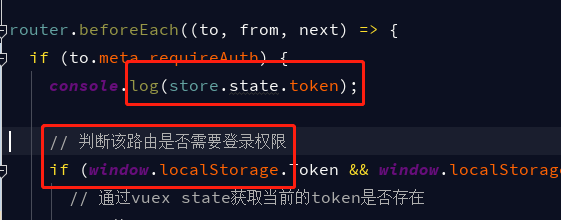What is the proper syntax for the .gitignore file to ignore files in a directory?
Would it be
config/databases.yml
cache/*
log/*
data/sql/*
lib/filter/base/*
lib/form/base/*
lib/model/map/*
lib/model/om/*
or
/config/databases.yml
/cache/*
/log/*
/data/sql/*
/lib/filter/base/*
/lib/form/base/*
/lib/model/map/*
/lib/model/om/*
?
PATTERN FORMAT
A blank line matches no files, so it can serve as a separator for readability.
A line starting with # serves as a comment.
An optional prefix ! which negates the pattern; any matching file excluded by a previous pattern will become included again. If a negated pattern matches, this will override lower precedence patterns sources.
If the pattern ends with a slash, it is removed for the purpose of the following description, but it would only find a match with a directory. In other words, foo/ will match a directory foo and paths underneath it, but will not match a regular file or a symbolic link foo (this is consistent with the way how pathspec works in general in git).
If the pattern does not contain a slash /, git treats it as a shell glob pattern and checks for a match against the pathname relative to the location of the .gitignore file (relative to the toplevel of the work tree if not from a .gitignore file).
Otherwise, git treats the pattern as a shell glob suitable for consumption by fnmatch(3) with the FNM_PATHNAME flag: wildcards in the pattern will not match a / in the pathname. For example, Documentation/*.html matches Documentation/git.html but not Documentation/ppc/ppc.html or tools/perf/Documentation/perf.html.
A leading slash matches the beginning of the pathname. For example, /*.c matches cat-file.c but not mozilla-sha1/sha1.c.
You can find more here
git help gitignore
or
man gitignore
It would be the former. Go by extensions as well instead of folder structure.
I.e. my example C# development ignore file:
#OS junk files
[Tt]humbs.db
*.DS_Store
#Visual Studio files
*.[Oo]bj
*.user
*.aps
*.pch
*.vspscc
*.vssscc
*_i.c
*_p.c
*.ncb
*.suo
*.tlb
*.tlh
*.bak
*.[Cc]ache
*.ilk
*.log
*.lib
*.sbr
*.sdf
ipch/
obj/
[Bb]in
[Dd]ebug*/
[Rr]elease*/
Ankh.NoLoad
#Tooling
_ReSharper*/
*.resharper
[Tt]est[Rr]esult*
#Project files
[Bb]uild/
#Subversion files
.svn
# Office Temp Files
~$*
Update
I thought I\'d provide an update from the comments below. Although not directly answering the OP\'s question, see the following for more examples of .gitignore syntax.
Community wiki (constantly being updated):
.gitignore for Visual Studio Projects and Solutions
More examples with specific language use can be found here (thanks to Chris McKnight\'s comment):
https://github.com/github/gitignore
Paths which contain slashes are taken to be relative to the directory containing the .gitignore file - usually the top level of your repository, though you can also place them in subdirectories.
So, since in all of the examples you give, the paths contain slashes, the two versions are identical. The only time you need to put a leading slash is when there isn\'t one in the path already. For example, to ignore foo only at the top level of the repository, use /foo. Simply writing foo would ignore anything called foo anywhere in the repository.
Your wildcards are also redundant. If you want to ignore an entire directory, simply name it:
lib/model/om
The only reason to use wildcards the way you have is if you intend to subsequently un-ignore something in the directory:
lib/model/om/* # ignore everything in the directory
!lib/model/om/foo # except foo
A leading slash indicates that the ignore entry is only to be valid with respect to the directory in which the .gitignore file resides. Specifying *.o would ignore all .o files in this directory and all subdirs, while /*.o would just ignore them in that dir, while again, /foo/*.o would only ignore them in /foo/*.o.
If you want to put a .gitignore file at the top level and make it work for any folder below it use /**/.
E.g. to ignore all *.map files in a /src/main/ folder and sub-folders use:
/src/main/**/*.map
Both examples in the question are actually very bad examples that can lead to data loss!
My advise: never append /* to directories in .gitignore files, unless you have a good reason!
A good reason would be for example what Jefromi wrote: \"if you intend to subsequently un-ignore something in the directory\".
The reason why it otherwise shouldn\'t be done is that appending /* to directories does on the one hand work in the manner that it properly ignores all contents of the directory, but on the other hand it has a dangerous side effect:
If you execute git stash -u (to temporarily stash tracked and untracked files) or git clean -df (to delete untracked but keep ignored files) in your repository, all directories that are ignored with an appended /* will be irreversibly deleted!
Some background
I had to learn this the hard way. Somebody in my team was appending /* to some directories in our .gitignore. Over the time I had occasions where certain directories would suddenly disappear. Directories with gigabytes of local data needed by our application. Nobody could explain it and I always hat to re-download all data. After a while I got a notion that it might have to do with git stash. One day I wanted to clean my local repo (while keeping ignored files) and I was using git clean -df and again my data was gone. This time I had enough and investigated the issue. I finally figured that the reason is the appended /*.
I assume it can be explained somehow by the fact that directory/* does ignore all contents of the directory but not the directory itself. Thus it\'s neither considered tracked nor ignored when things get deleted. Even though git status and git status --ignored give a slightly different picture on it.
How to reproduce
Here is how to reproduce the behaviour. I\'m currently using Git 2.8.4.
A directory called localdata/ with a dummy file in it (important.dat) will be created in a local git repository and the contents will be ignored by putting /localdata/* into the .gitignore file. When one of the two mentioned git commands is executed now, the directory will be (unexpectedly) lost.
mkdir test
cd test
git init
echo \"/localdata/*\" >.gitignore
git add .gitignore
git commit -m \"Add .gitignore.\"
mkdir localdata
echo \"Important data\" >localdata/important.dat
touch untracked-file
If you do a git status --ignored here, you\'ll get:
On branch master
Untracked files:
(use \"git add <file>...\" to include in what will be committed)
untracked-file
Ignored files:
(use \"git add -f <file>...\" to include in what will be committed)
localdata/
Now either do
git stash -u
git stash pop
or
git clean -df
In both cases the allegedly ignored directory localdata will be gone!
Not sure if this can be considered a bug, but I guess it\'s at least a feature that nobody needs.
I\'ll report that to the git development list and see what they think about it.
The first one. Those file paths are relative from where your .gitignore file is.
It would be:
config/databases.yml
cache
log
data/sql
lib/filter/base
lib/form/base
lib/model/map
lib/model/om
or possibly even:
config/databases.yml
cache
log
data/sql
lib/*/base
lib/model/map
lib/model/om
in case that filter and form are the only directories in lib that do have a basesubdirectory that needs to be ignored (see it as an example of what you can do with the asterics).
I\'m maintaining a GUI and CLI based service that allows you to generate .gitignore templates very easily at https://www.gitignore.io.
You can either type the templates you want in the search field or install the command line alias and run
$ gi swift,osx
A sample .gitignore file can look like one below for a Android Studio project
# built application files
*.apk
*.ap_
# files for the dex VM
*.dex
# Java class files
*.class
# generated files
bin/
gen/
# Local configuration file (sdk path, etc)
local.properties
#Eclipse
*.pydevproject
.project
.metadata
bin/**
tmp/**
tmp/**/*
*.tmp
*.bak
*.swp
*~.nib
local.properties
.classpath
.settings/
.loadpath
YourProjetcName/.gradle/
YourProjetcName/app/build/
*/YourProjetcName/.gradle/
*/YourProjetcName/app/build/
# External tool builders
.externalToolBuilders/
# Locally stored \"Eclipse launch configurations\"
*.launch
# CDT-specific
.cproject
# PDT-specific
.buildpath
# Proguard folder generated by Eclipse
proguard/
# Intellij project files
*.iml
*.ipr
*.iws
.idea/
/build
build/
*/build/
*/*/build/
*/*/*/build/
*.bin
*.lock
YourProjetcName/app/build/
.gradle
/local.properties
/.idea/workspace.xml
/.idea/libraries
.DS_Store
.gradle/
app/build/
*app/build/
# Local configuration file (sdk path, etc)
local.properties
/YourProjetcName/build/intermediates/lint-cache/api-versions-6-23.1.bin
appcompat_v7_23_1_1.xml
projectFilesBackup
build.gradle
YourProjetcName.iml
YourProjetcName.iml
gradlew
gradlew.bat
local.properties
settings.gradle
.gradle
.idea
android
build
gradle


